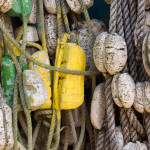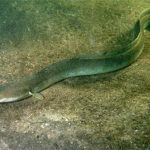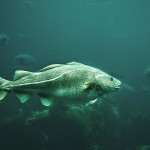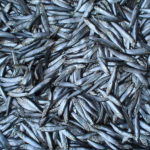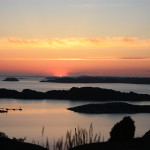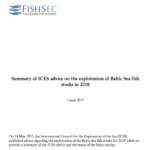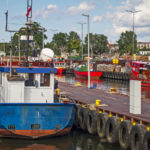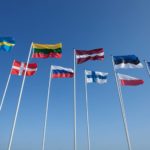News
September 26, 2017
Advisory Council membership amended
The Commission have published an amendment to the delegated act on the Advisory Councils.
September 14, 2017
Eel no longer order of the day as Danish Presidency of Baltfish begins
Protecting endangered eel by prohibiting fishing as well as discussions on quotas, including cod, dominated the Baltfish agenda as the regional fisheries management body for the Baltic Sea began its eighth year of work in Copenhagen, with Denmark the final country to host the rotating annual Presidency.
August 29, 2017
Commission Baltic proposals: Roll over western cod quota but ban eel fishing
Ahead of the October Council, the European Commission has made it's proposal for the 2018 quotas in the Baltic Sea.
August 24, 2017
Return of M74 syndrome in Baltic salmon strengthens the case for spatial management of sprat
Over the past year there has been a significant increase in the M74 syndrome which has blighted salmon stocks in the Baltic Sea. This reproductive disorder is known to occur more often when sprat forms too large a part of the salmon diet.
June 27, 2017
Recommendations to implement EBFM in the Baltic Sea
FishSec has completed a set of recommendations for the implementation of ecosystem-based fisheries management (EBFM) in the Baltic Sea region.
June 1, 2017
ICES releases 2018 Advice for Baltic Sea fish stocks
The Fisheries Secretariat provides below our summary after The International Council for the Exploration of the Sea (ICES) released its scientific advice for Baltic Sea stocks yesterday, 31 May.
May 23, 2017
Danish failure in the Baltic Sea – fishermen and cod decline together
New financial figures released from the Danish cod fleet operating in the Baltic Sea in the first quarter of 2017 show the socioeconomic problems of overfishing a stock to heavily depleted levels of biomass. Despite a 12% rise in the price of cod this year, turnover has declined by 22%.
April 28, 2017
Risky business in governance
Ecosystem Based Management (EBM) has evolved from an idealistic concept to a driver for dynamic oceans governance. An iteration of EBM is also defined in the EU Common Fisheries Policy, yet implementation continues to stall. Roland Cormier at Helmholtz-Zentrum may have just the answer.
April 7, 2017
German Presidency of BALTFISH drawing to a close with discussions on discards
In what will likely be the final meeting under the German Presidency, the BALTFISH Forum and High Level Group are meeting in Berlin on 26-27 April.
March 31, 2017
BSAC established new working group for ecosystem based management
The Baltic Sea Advisory Council, BSAC, 28 March established a sub working group that will produce advice on the implementation of the Ecosystem Approach to Management, EAM. At the first meeting of the sub group, which will report to the demersal working group, Nils Höglund from Coalition Clean Baltic was elected Chair.
